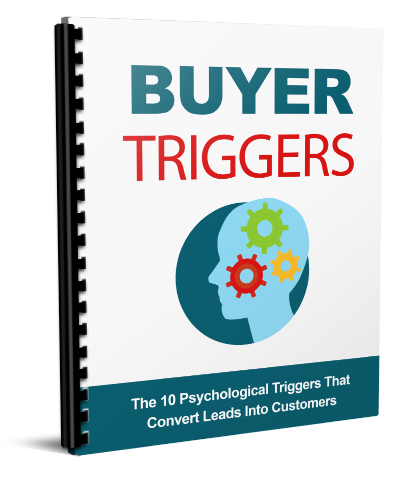One of the most fascinating things about marketing is that business owners are constantly reinventing how things are done, the terms that are used, and how trends take over and disappear almost instantaneously. As a digital entrepreneur, this is probably less fascinating to you, and more frustrating, as you might feel like you’ve landed on a new planet almost every week.
Have you heard about EAT?
We have good news for you: No matter what, regardless of trends, there are two things you can rest assured will always be important. What are those two things? Well, the first is killer content, but you already knew that. The second thing? EAT.
Not “eat” as in “dinner was delicious, thank you”, but EAT as in E.A.T. This unassuming acronym could potentially crack the code of Search Engine Optimization (SEO), and how to get those tricky Google search bots on your side for higher ranking and ultimately, more traffic.
What Is EAT?
EAT stands for “Expertise, Authority, and Trust”. These are the three factors that Google – and ostensibly your audience – measure your site for in order to consider it a valuable resource.
Let’s drill down a bit into what each of these means, not just to you, but to Google.
Expertise
This is generally agreed upon as your level of skill or knowledge about your niche topic.
Your site is more than a sales platform. It’s a demonstration of all you have learned in your niche. We’ve discussed how buyers are looking for a solution to a problem. Your site shouldn’t just offer a solution, but demonstrate that you understand the problem, and reveal how your product or services will solve that problem.
Authority
We’ve used the phrase “trusted authority” several times on this site, because that’s what consumers are looking for. The word “authority” implies power or official status, and acting as an authority within your niche means that you not only understand the situation, the players, the problems, and the solutions, but you are here as someone who can provide all of the answers.
It’s a level of confidence that comes from having a high level of expertise gained through significant learning. Users and Google crawlers alike are looking for your qualifications and experience.
Trust
Historically, Google has measured trust rather simply: through backlinks from other websites. If each domain is highly ranked, then that backlink is highly ranked. Over the years, that measurement has been expanded to mimic human trust. When your customers receive the product as advertised, delivered quickly, and with all necessary information included, they trust you and your business.
Similarly, when crawlers discover that your content includes details that are factual, with external links to trusted websites, they’ll consider your site trustworthy, as well.
What’s important for Search Engine Bots
While human users are looking for sites where they can learn more about solutions, Google’s bots and crawlers are looking for the sites where people spend time learning. Sites that demonstrate EAT are going to be more valuable sites to searchers than a basic purchasing platform.
Consider the difference between a convenience store and a specialty store. The convenience store may have what you’re looking for, but the specialty store will have a variety of what you need, along with ratings, instructions, and details about what to expect. When it comes to a significant investment or solving a long-running problem, it’s easy to understand which option consumers will prefer.
How Does EAT Impact SEO?
Google has a publicly viewable document known as the Search Quality Evaluator Guidelines, or SQEG. You can download the PDF and read it at any time, though it is frequently updated.
While it doesn’t fully divulge the mystic properties that are involved in the Ultimate Google Algorithm, it does outline how Search Quality Raters work. Search Quality Raters are real people, from around the world, who use the Guidelines to determine whether a search is accurate and meets standards. Google then uses their feedback to make changes in the search result algorithm.
In short, while we still don’t know how the algorithm works, we can adjust our web content to reflect the qualities demonstrated in EAT. That way, the real, live human beings who develop and evaluate the SQEG will be able to see that you and your site demonstrate Expertise, Authority, and Trust.
As a result of this actual human interaction, Googles bots and crawlers will “learn” which sites have higher levels of EAT, and rank those sites higher than less expert counterparts on Search Engine Results Pages (SERPs).
How Do I Improve My EAT-ness?
The best way to demonstrate Expertise, Authority, and Trustworthiness is through your content. In fact, there are a few specific guidelines to follow that will help you ensure your content is always EAT-worthy:
- Make sure all content is research and written on an expert level. Include links to sites used as reference to demonstrate that the content is factual and based on current data.
- Create content that has a purpose in the eyes of the audience. Years ago, keyword-loading was a popular technique for attracting bots and crawlers. As a result, content was often a nonsensical mash-up of keywords and terms. This is no longer the case. Content should be purposeful, educational, informative, and entertaining.
- Keep mobile users in mind. Many web design platforms are mobile-friendly, but always take a moment to make sure your media and text loads appropriately on mobile devices.
Over time, your personal expertise will grow. Make sure your content grows with it. Working on your website is a continuous process, and you can implement improvements daily. Look at your older blog posts. Refresh them with what you know to be true today. Bots and crawlers look at updated content as a sign of expertise.
Update your “About” page to include your personal qualifications, education, and experiences related to your niche and business. This will help you gain authority and trustworthiness, as this informs customers and crawlers alike about your particular insight. Promote your site within itself with references to your own experience in content.
Final Considerations
Altogether, look at your site from the viewpoint of a customer. Does it give you the sense of EAT? What are some particular points of content that demonstrate your Expertise, Authority, and Trustworthiness? If you don’t feel these points come across well, change them! There’s no time like the present to improve upon your site. As you learn and grow, so should your site. The Google crawlers and users alike will thank you.










[…] The “Awareness” stage can be a precarious location, mainly because you don’t quite know how your potential lead got there. It might be a social media posting you made. They might have heard about you from a friend or relative. As in the example earlier, they might have simply stumbled upon your fantastic SEO ranking. […]